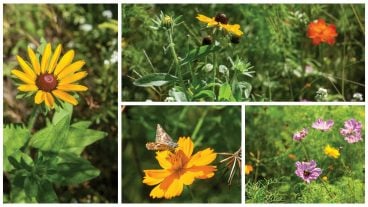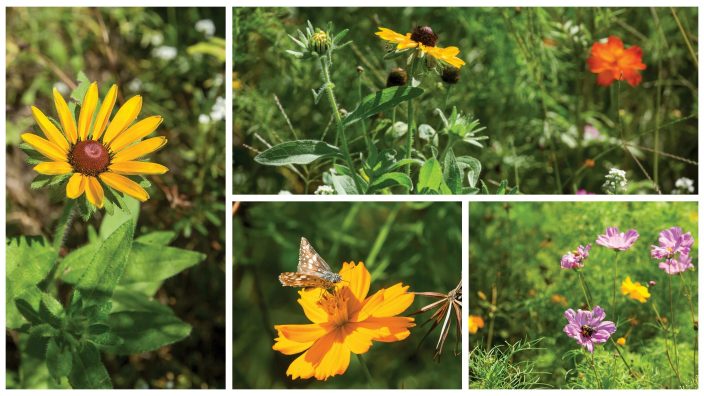Cover crops come to home gardens
The practice of planting crops to overwinter in the garden, which is becoming more common on farms, can improve soil conditions, increase yield and prevent weeds.
Read MoreThe practice of planting crops to overwinter in the garden, which is becoming more common on farms, can improve soil conditions, increase yield and prevent weed.
While many aspects of gardening have been influenced by science and innovation, some experts are touting a trend that has its roots in centuries-old farming practices. More and more gardeners are encouraged to do as the ancient Greeks and Romans did and many farmers do today—plant cover crops.
The practice of planting crops to overwinter in the garden, which is becoming more common on farms, can improve soil conditions, increase yield and prevent weeds, said Greg Meyer, who serves as an agricultural and natural resource educator for the Warren County Extension Office in Lebanon. “When I teach gardening classes, it’s something I talk about,” he said. “For relatively little money, the gardener can see a real change. The value to the garden is tremendous.”
Introduced after the garden has been harvested, cover crops – typically planted as seeds – protect the soil from erosion and prevent nutrient runoff during the winter. The placeholder crops then become organic material for the garden in the spring. Having plants in the garden year-round also helps keep weeds at bay.
Annuals make the best cover crops, Meyer said, because gardeners don’t have to kill them before their spring planting. Annuals can be tilled right into the soil, improving its make-up. “It’s easier to manage an annual because you don’t have to worry that the cover crop you put out there turning into a weed,” he said.
John Watts had several reasons for planting cover crops at Homestead Park in Hilliard. The resource manager for the Columbus MetroParks wanted to convert three acres of grass into a prairie filled with native Ohio plants, including black-eyed Susans and purple coneflower.
After mowing and killing the turf, the park seeded the area with winter wheat and rye. The winter cover crops provided additional nutrients for the soil and helped keep the weeds away, he said. “The goal is to have some type of cover going into winter,” he said. “It holds your soil down and protects it from wind and rain.”
In the spring, he seeded the area with the native plants that the park district wanted to establish in the meadow but also included annuals. The fast-growing annuals helped mitigate weeds while the slow-to-establish native plants took hold, Watts said. “Having some type of cover can really keep weeds down,” he said. “The annuals as a cover crop also added some color, show and nectar sources for that first year.”
Cover crops also create more resilient soil and ultimately increase the garden’s yield, added Fairfield County Farm Bureau member Ann Brandt, co-owner of Walnut Creek Seeds in Carroll. The company specializes in cover crop seeds. Using cover crops helps the soil cycle nutrients more effectively and increases its water holding capabilities, which is great for the next season’s vegetables and plants, she said. The practice allows “nature to do what nature does best,” she said.
A variety of plants can be used as cover crops, said Meyer. Rye, wheat and oats are good options. There is a wide window for planting rye. Since it only needs about three weeks to a month to develop, gardeners can plant it late in October and it will still take hold and improve the garden. In warmer parts of the state, gardeners could even wait until November to plant rye, he said.
Oats and wheat should be planted in October. The annual plants are easy to turn into the soil in the spring to prepare for the next season’s planting.
Clover not only adds nitrogen to the soil, but it also features a large red flower that makes it a popular choice as a cover crop. Clover can be planted through September. It’s also possible to plant it in February or after the final snow if you intend to go fallow with a portion of the garden, Meyer said.
One challenge of using clover is that it’s a perennial and must be killed off before planting can begin.
Field peas are a good annual alternative if you are looking for a legume, Meyer said. Plant peas when the weather starts to change in late August or early September. He suggests pairing them with oat seeds to give the peas something to use as a trellis.
Photos by Dave Liggett


The practice of planting crops to overwinter in the garden, which is becoming more common on farms, can improve soil conditions, increase yield and prevent weeds.
Read More